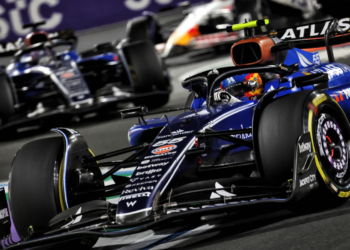Formula 1 is a sport built on precision, speed, and split-second decisions. But for many fans, the excitement doesn’t stop at the track. Betting on races has become a growing part of how people engage with the sport.
This article discusses what goes on inside the mind of an Formula 1 bettor. It explains the emotions, habits, and decisions that shape how fans place their bets. Explore what really drives people to take the gamble and what sets F1 betting apart from the rest.
Why betting feels like part of the action
Formula 1 is known for its fine margins and unexpected twists. Races can be won or lost by a second, and even the best teams sometimes falter. That uncertainty draws bettors in.
When you place a bet, you become part of the story. Your predictions align with race outcomes, and every overtake or pit stop feels personal.
This emotional connection to the outcome creates a stronger bond between fans and the sport. Unlike watching casually, betting adds another layer of tension and reward. It’s not just about your favorite driver winning. It’s about whether your instincts, knowledge, and choices were right.

How emotions and bias shape F1 bets
Even the smartest fans will fall into mental traps when betting on Formula 1. A common one is the hot-hand fallacy, thinking a driver who’s been winning will keep winning, just because they’ve had a good run.
Another is the gambler’s fallacy, where someone believes a driver who hasn’t won in a while is “due” for a win, even when the stats say otherwise.
Emotions also play a big part. Fans often bet on their favorite teams or drivers, even if they know the odds aren’t great. Others do the opposite and bet against them, so they feel better if things go wrong.
This is called emotional hedging. It doesn’t always make sense on paper, but it can help fans deal with the highs and lows of racing.
How convenience is changing betting habits
The way people bet has changed. With smartphones and quick payment options, placing a wager during a race weekend has never been easier.
One of the more popular trends involves using pay by phone betting sites, with many fans now reviewing these platforms to find the most secure and easy-to-use options. These sites let you deposit through your mobile phone bill. It offers a fast and flexible way to manage bets without needing a bank account or credit card.
But with convenience comes the risk of impulsive betting. When it’s easy to bet in seconds, it’s just as easy to lose track of spending. Bettors must be mindful of their habits to enjoy the experience without it turning into a problem.
It’s also worth noting how this ease of access opens up betting to a wider audience. People who may have avoided traditional online betting due to payment barriers now have a simpler entry point.

What makes F1 betting unique
Formula 1 is different from other sports because many things can affect the result. Weather, tire choices, safety cars, and team decisions can all change a race quickly. A perfect example is Charles Leclerc’s tough qualifying performance in Australia, where unexpected team issues disrupted his weekend from the start.
This makes Formula 1 betting feel more analytical. It rewards knowledge, attention to detail, and a bit of intuition. That combination makes it particularly appealing to motorsport fans who already understand the complexity behind each lap.
Unlike betting on team sports where results often follow patterns, Formula 1 keeps bettors guessing. That unpredictability is part of what makes the challenge exciting, and the wins feel more earned.
Final thoughts: Where gut meets grit
The psychology of Formula 1 betting blends emotion, pattern-seeking, and strategy. Bettors are driven by more than numbers; they’re influenced by hopes, fears, and the thrill of being part of something unpredictable. As technology and convenience reshape how we bet, understanding the mental side becomes more important than ever.
For fans who want to combine their passion for the sport with smart, responsible wagering, it pays to know what’s happening not just on the track, but in your own mind.









